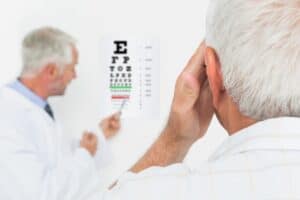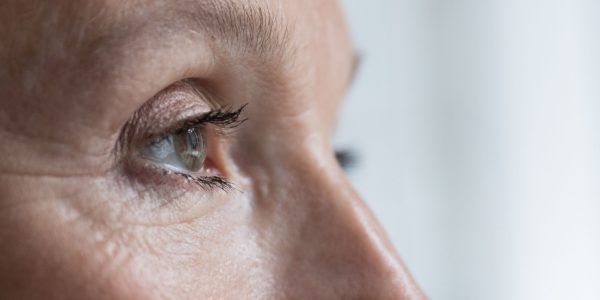
Glaucoma and Cataracts
If you have diabetes, you are statistically more likely to develop vision-stealing conditions like glaucoma or cataracts than people that do not have diabetes, even if you are younger than the average glaucoma or cataract patient. Both of these conditions have the potential to lead to serious vision loss and blindness.
Diabetic Retinopathy
Diabetes also raises the risk of damage to the retina, or the light-sensitive tissue that lines the back wall of your eye. Damage to the retina caused by diabetes is called diabetic retinopathy.
Uncontrolled levels of sugar in your blood can damage the tiny blood vessels that nourish the retina, causing them to swell or leak blood or fluid. In the most advanced cases of diabetic retinopathy, new, abnormal blood vessels can grow in the retina and the vitreous, or the clear gel that fills the interior of the eye. These abnormal blood vessels can rupture and bleed. They may cause scar tissue to develop, which can pull on the retina and separate it from its normal position (i.e., retinal detachment).
Sometimes the abnormal retinal blood vessels leak blood and fluid into the macula, or the central portion of the retina that is responsible for clear central and detailed vision. This complication is known as diabetic macular edema, and can lead to a significant loss of central vision.
Early Detection Is Key
In many cases, diabetic eye conditions do not cause noticeable symptoms until they have progressed considerably. The best way to be diligent and detect problems in their early stages, when they are more easily controlled, is through comprehensive eye exams with an ophthalmologist. Ideally, anyone with diabetes should have annual eye exams to check for problems that may otherwise go unnoticed.
If you have diabetes but it’s been awhile since your last eye exam, Dr. Mandel suggests you schedule an appointment with your regular optometrist or ophthalmologist. Or, for general questions, you can email Dr. Mandel.



